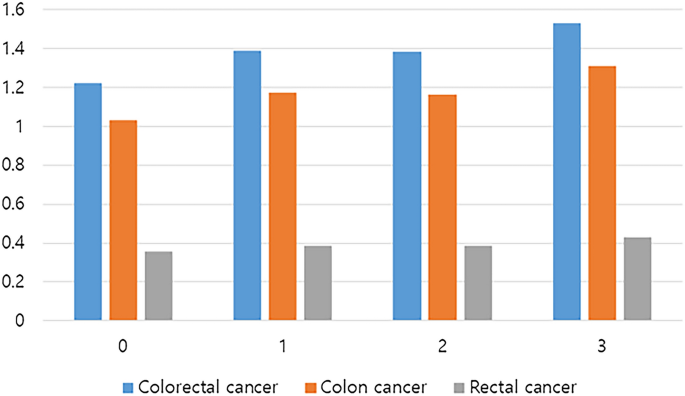
Obesity Epidemic: How Excess Weight Increases Colon Cancer Risk
Obesity is a growing health concern worldwide, with millions of people around the globe succumbing to its various health risks. Among the many alarming consequences of obesity, one that stands out is the increased risk of colon cancer. There is a strong link between excess weight and the development of colon cancer, making it crucial for individuals, medical professionals, and policymakers to understand and address this issue to combat the obesity epidemic.
Firstly, let us explore the staggering rise in obesity rates and its impact on colon cancer risk. In recent decades, obesity has reached epidemic proportions globally, affecting people of all ages and backgrounds. According to the World Health Organization (WHO), more than 1.9 billion adults are overweight, with over 650 million classified as obese. Unsurprisingly, these statistics have had a significant impact on public health, leading to a surge in cases of chronic diseases, including colon cancer.
Excess weight has been consistently linked to the development of many types of cancers, with colon cancer being one of the most prevalent. Numerous studies have shown that individuals who are overweight or obese are at a higher risk of developing colorectal cancer than those within a healthy weight range. The American Cancer Society reports that men and women who are obese have a 30-50% increased risk of developing colon cancer compared to individuals with a healthy weight.
So, why does excess weight increase the risk of colon cancer? There are several mechanisms that contribute to this association. Firstly, adipose tissue, or the fat cells present in excess weight individuals, plays a role in the production of hormones and growth factors. These hormones and growth factors can stimulate the growth of cancer cells, leading to the formation of tumors. Additionally, excess weight is associated with chronic inflammation in the body, which can also contribute to the development of cancerous cells.
Furthermore, lifestyle factors that often accompany obesity can also contribute to an increased risk of colon cancer. Sedentary behavior, a hallmark of many overweight and obese individuals, can have detrimental effects on colon health. Lack of physical activity and prolonged sitting time have been identified as independent risk factors for colon cancer. In contrast, engaging in regular physical activity has been shown to decrease the risk of colon cancer, highlighting the importance of leading an active lifestyle.
Moreover, dietary choices play a crucial role in both obesity and colon cancer risk. Consuming a diet high in processed foods, sugary drinks, and unhealthy fats has been associated with weight gain and an increased risk of colon cancer. On the other hand, a diet rich in fruits, vegetables, whole grains, and lean proteins has been shown to help maintain a healthy weight and reduce the risk of developing colon cancer. By adopting healthier eating habits and making conscious choices about what we consume, we can significantly reduce the risk of obesity-related colon cancer.
Addressing the obesity epidemic and its association with colon cancer risk requires a multifaceted approach. Education and awareness campaigns are crucial in promoting healthy lifestyles and encouraging individuals to maintain a healthy weight. Healthcare professionals must emphasize the importance of regular physical activity and healthy eating habits to their patients and provide support and resources to help them achieve these goals.
Additionally, policymakers and governments have a significant role to play in combating obesity and reducing the risk of colon cancer. Implementing regulations that promote healthy food choices, limiting the marketing of unhealthy foods to children, and creating environments that encourage physical activity can have a substantial impact on obesity rates and the prevalence of associated diseases such as colon cancer.
In conclusion, the obesity epidemic has had a profound impact on public health, with colon cancer being one of the many serious consequences. Excess weight has been consistently linked to an increased risk of colon cancer due to various factors such as hormone production, chronic inflammation, sedentary behavior, and unhealthy diets. Addressing the obesity epidemic requires a collaborative effort from individuals, medical professionals, and policymakers to promote a healthier lifestyle, raise awareness about the risks, and implement effective measures to reduce the burden of obesity-related colon cancer.

















